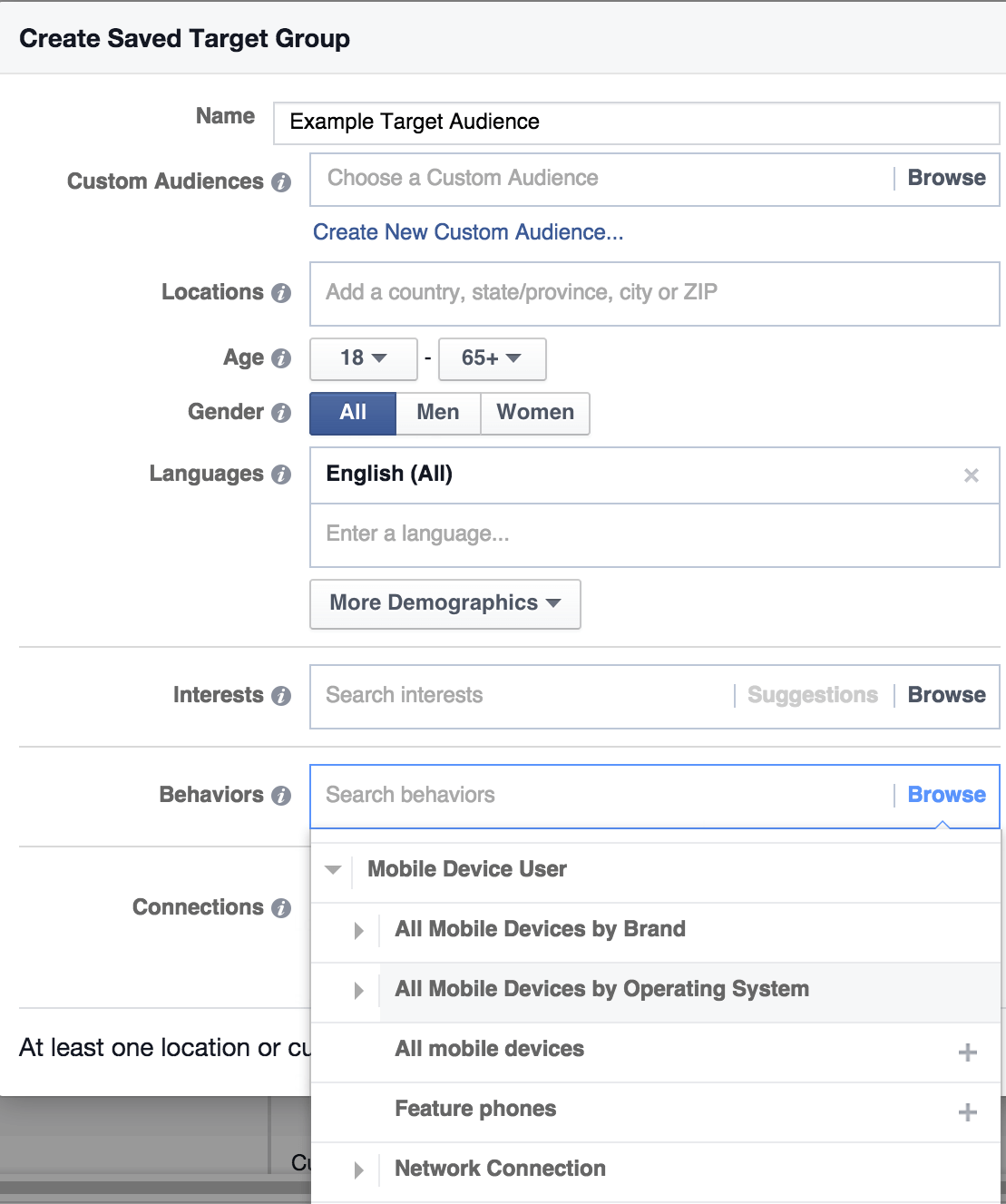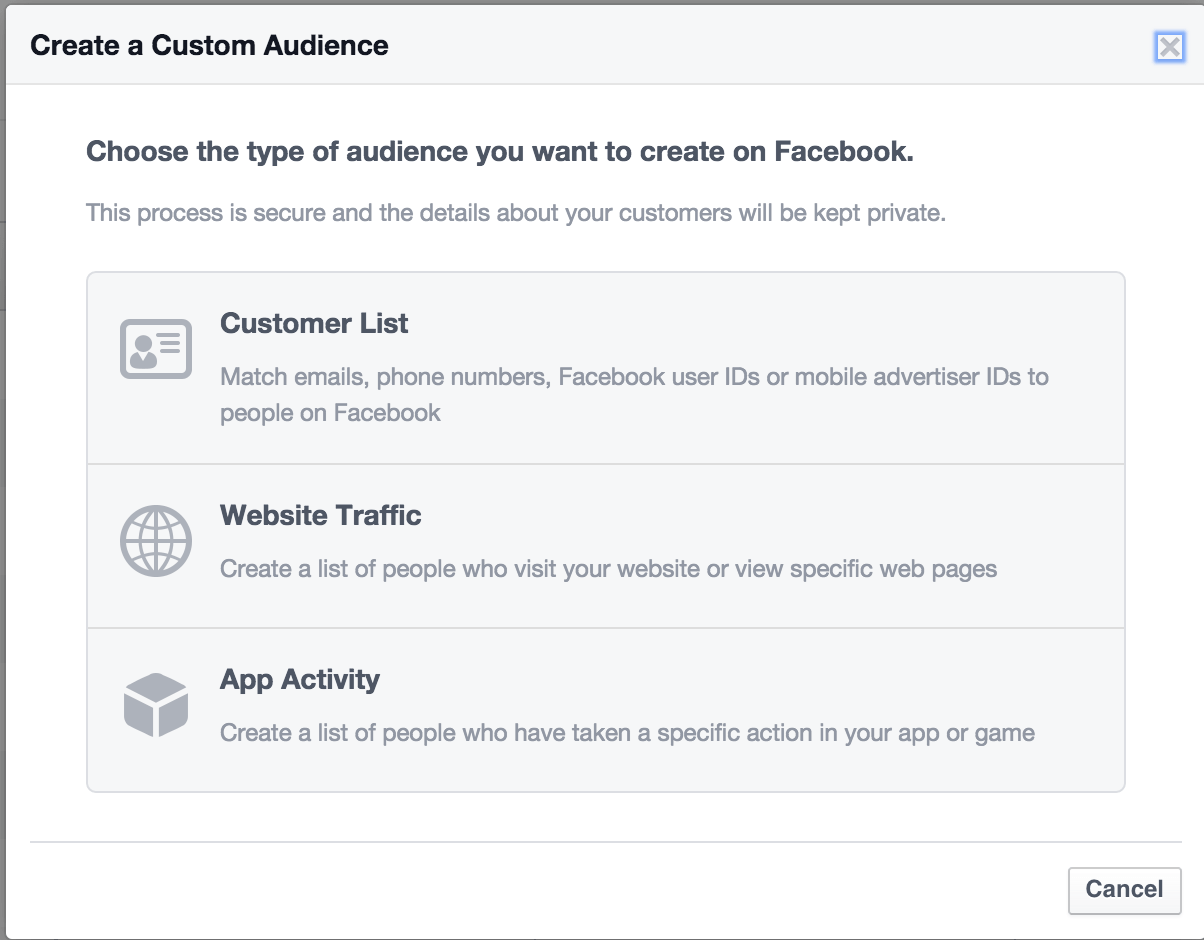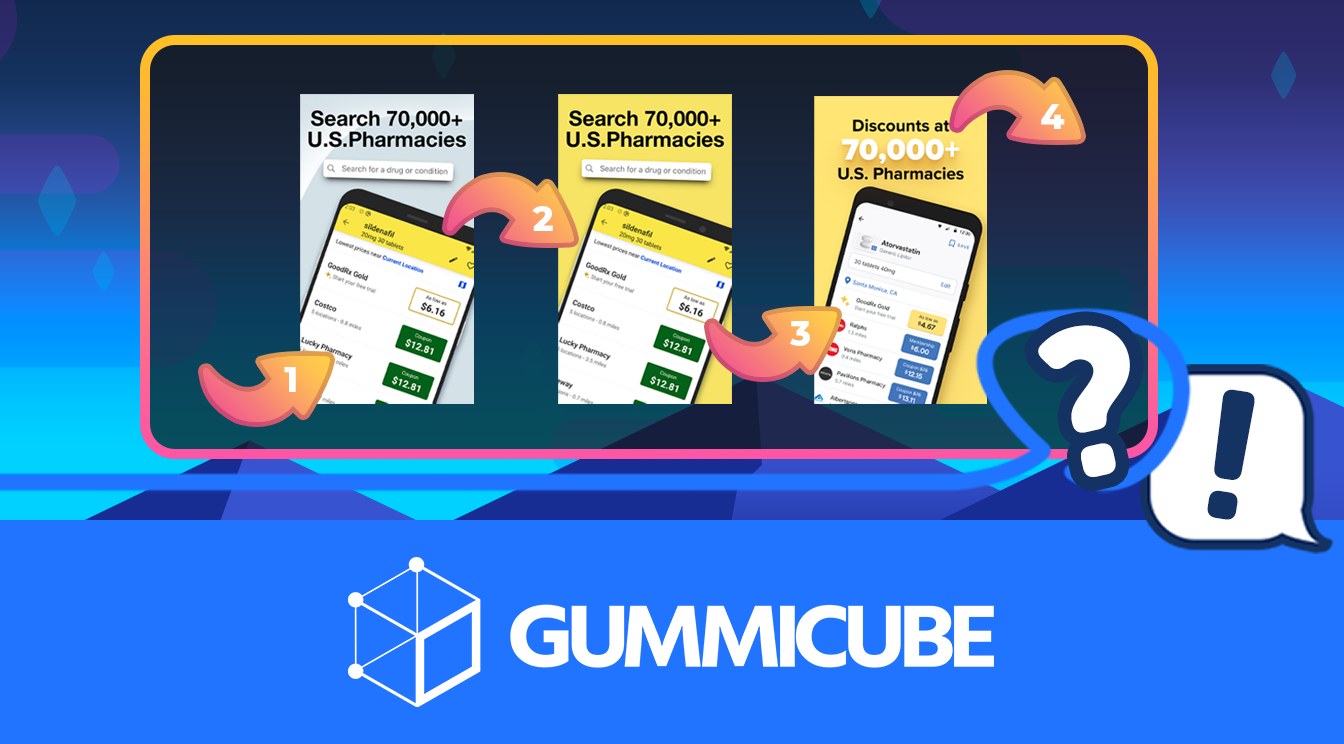Facebook Ads for Mobile Apps - an Overview
April 17th, 2015


by David Quinn
VP of Strategy & Partnerships at Gummicube, Inc.
If you have never run an ad campaign on Facebook's advertising platform - you are in for a treat. In this Facebook mobile ads overview - we will introduce terms like look-a-like audiences, custom audiences, Power Editor, conversion pixels and Facebook Insights. We'll review some of the literally hundreds of demographic, behavioral and interest targeting options. Tomorrow we'll cover some best practices including ABT (always be testing), tracking attribution and LTV, and mobile specific examples.
The
Facebook ad network lexicon
Let's looks at each and how they impact a user acquisition and retention campaign.
Behavioral, Demographic and Interest Targeting
Not only does Facebook have a wealth of knowledge on their users, but they also partner with several sources of 3rd party data to provide targeting opportunities unique to the Facebook ad platform. Facebook partners with Epsilon, Acxiom and Datalogix to acquire a more complete profile of the Facebook user base. Specifically - Facebook collects data from the U.S. Census, warranty cards, registration information, the Department of Motor Vehicles, public record information, survey data and other offline sources. Facebook also gathers “U.S. consumer data on where consumers shop, how they shop, what products and brands they purchase, the publications they read and their demographic and psychographic attributes.” Demographic In addition to more widely available demographic data like gender, relationship status, age and location - Facebook collects data and creates profiles for:
In addition to more widely available demographic data like gender, relationship status, age and location - Facebook collects data and creates profiles for:
Financial – Income, Net Worth
Home – Home Type, Home Ownership, Household Composition
Parents – Parents of children within a specific age range etc.
Politics – Preferred political party etc.
Life Events – new job, anniversary coming up, newly engaged, just married etc.
Here are a few examples of the type of targeting Facebook enables: Interest  Behavioral
Behavioral 
Custom Audiences
A group of Facebook users that you create in one or a combination of the following ways:
upload a list - likely an email list.
Could be people who signed up for your beta, or are your current customers and likely users of your mobile app.
have completed a specific action on your website
people who have taken a specific action (or series of actions) in your app
 You can then target even further based on the targeting options above.
You can then target even further based on the targeting options above.
Lookalike
Now that you have your custom audiences - you can try to recreate this audience. Exploring Audience Insights is valuable finding new ways to reach your target users - but not the best route for creating a broader target audience.  The very best way to find an audience that is likely to respond like your Custom Audience did (signed up for email, visited a website, performed an action in your app) is by asking Facebook to find the most similar users across their network based on all the variables they track. Very cool, insanely useful. You can create a lookalike by reach or precision.
The very best way to find an audience that is likely to respond like your Custom Audience did (signed up for email, visited a website, performed an action in your app) is by asking Facebook to find the most similar users across their network based on all the variables they track. Very cool, insanely useful. You can create a lookalike by reach or precision.
Part Two will introduce Insights, Retargeting and walk thru a few examples of using Facebook for a mobile app campaign.
Similar Articles

Posted on October 6th, 2023
Ghostly happenings are among us... and in your app listing too? If you aren't leveraging the power of app seasonality to make relevant tweaks to your store listing you're leaving precious engagement and conversions on the table.

Posted on November 8th, 2021
Developers on the iOS App Store should plan in advance of the upcoming Holiday Schedule to allow enough time for apps to get approved during the busy holidays.

Posted on November 1st, 2021
App Store Optimization is an involved process that should be regularly revisited based on recent changes in trends. Iteration is one of the key drivers for success in ASO.




 In addition to more widely available demographic data like gender, relationship status, age and location - Facebook collects data and creates profiles for:
In addition to more widely available demographic data like gender, relationship status, age and location - Facebook collects data and creates profiles for: Behavioral
Behavioral 
 You can then target even further based on the targeting options above.
You can then target even further based on the targeting options above. The very best way to find an audience that is likely to respond like your Custom Audience did (signed up for email, visited a website, performed an action in your app) is by asking Facebook to find the most similar users across their network based on all the variables they track. Very cool, insanely useful. You can create a lookalike by reach or precision.
The very best way to find an audience that is likely to respond like your Custom Audience did (signed up for email, visited a website, performed an action in your app) is by asking Facebook to find the most similar users across their network based on all the variables they track. Very cool, insanely useful. You can create a lookalike by reach or precision.
